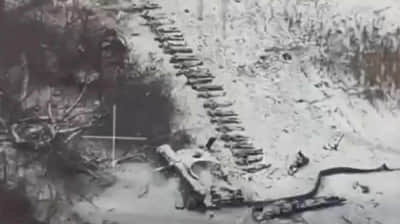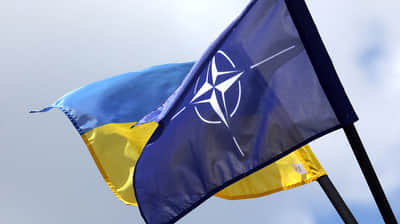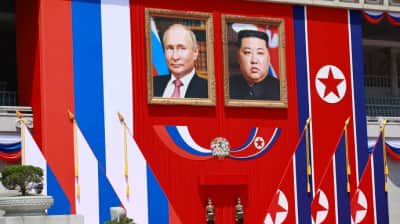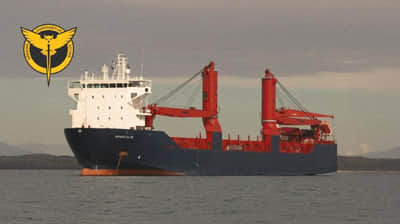Russian forces lack mechanised forces to advance beyond Bakhmut – ISW
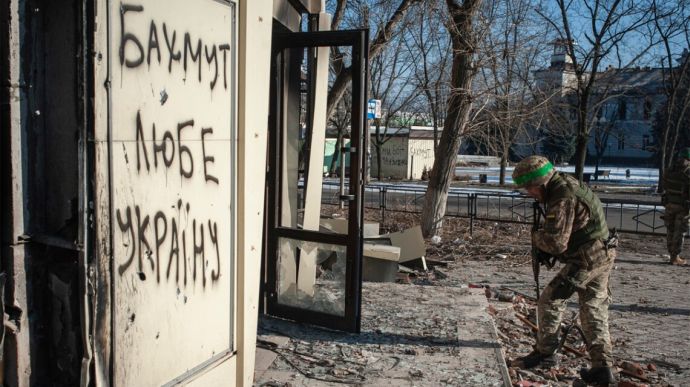
The Institute for the Study of War (ISW) has suggested that the Russian forces lack the mechanised forces necessary to advance beyond Bakhmut.
Source: ISW
Details: Ukrainian President Volodymyr Zelenskyy stated on 7 March that the hypothetical Russian capture of Bakhmut would provide Russian forces an "open road" to Kramatorsk, Sloviansk, and other critical settlements in Donetsk Oblast.
However, ISW continues to assess, however, that Russian forces lack the capability to exploit the tactical capture of Bakhmut to generate operational effects, and will likely rapidly culminate following the capture of Bakhmut.
Russian forces additionally likely lack the mechanised forces necessary to advance beyond Bakhmut, and the tactical "assault detachments" used in assaults against the city are likely unable to conduct manoeuvre warfare.
Recent Russian advances within urban areas of Bakhmut demonstrate that Russian forces can secure limited tactical gains with infantry-led frontal assaults.
Additionally, Russian forces likely lack the mechanised forces necessary to exploit the roads (which are likely highly fortified) west of Bakhmut.
As ISW has previously assessed, Russian forces would have to choose between two diverging lines of advance after capturing Bakhmut.
Russian forces could attempt to push towards Kostiatynivka (about 20 km from Bakhmut) or could push northwest along the E40 highway towards the Slovyansk-Kramatorsk area in northwestern Donetsk Oblast (about 40 km northwest of Bakhmut)
As ISW suggests, degraded Russian forces would likely have to prioritise the pursuit of just one to have any chance of success – though Russian commanders have repeatedly stretched their forces too thin across multiple axes of advance throughout the invasion of Ukraine.
It was noted that Ukrainian forces have also heavily fortified both of these routes, which are supplied by numerous ground lines of communication (GLOCs) running deep into the Ukrainian rear, and any Russian attempt to advance down these roads would likely be "highly costly".
"Russian forces remain unlikely to secure more than a tactical victory following 10 months of assaults," the report said.
Key Takeaways from 7 March:
- Ukrainian President Volodymyr Zelenskyy stated on 7 March that Russian forces will have an "open road" to capture key cities in Donbas.
- Russian forces likely lack the mechanised forces necessary to advance beyond Bakhmut, and the tactical "assault detachments" used in assaults against Bakhmut are likely unable to conduct manoeuvre warfare.
- Russian forces have likely captured the eastern part of Bakhmut following a controlled Ukrainian withdrawal as of 7 March.
- Russian Defence Minister Sergey Shoigu reiterated boilerplate rhetoric seeking to deter further Western military aid to Ukraine.
- Shoigu additionally outlined long-term and likely aspirational efforts to restore and expand the Russian officer corps.
- Russia exchanged 130 Ukrainian prisoners-of-war (POWs) for 90 Russian POWs on 7 March.
- US Air Force General James Hecker confirmed that the US has provided Ukraine with Joint Direct Attack Munition Extended Range (JDAM-ER) kits.
- Russian forces conducted limited ground attacks along the Kupiansk-Svatove-Kreminna line.
- Russian forces continued ground attacks along the Avdiivka-Donetsk City line.
- A Russian source claimed that Ukrainian forces attempt to conduct operations across the Dnipro River in Kherson Oblast.
- Russian federal authorities continue to place the onus of solving mobilisation issues onto Russian regional authorities who then absolve themselves of ongoing Russian command issues.
- Russian occupation authorities continue to import employees from various Russian law enforcement agencies to staff vacancies in occupation administrations.
Journalists fight on their own frontline. Support Ukrainska Pravda or become our patron!
